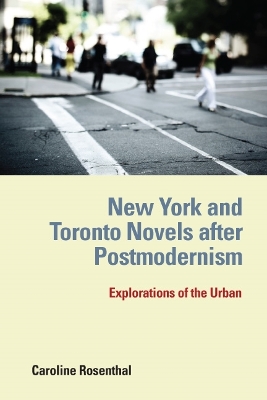European Studies in North American Literature and Culture
1 total work
Cities are material and symbolic spaces through which nations define their cultural identities. The great cities that have arisen on the North American continent have stimulated the imaginations of the United States and Canada invery different ways. This first comparative study of North American urban fiction starts out by delineating the sociohistorical and literary contexts in which cities grew into diverging symbolic spaces in American and Canadian culture. After an overview of recent developments in the cultural conception of urban space, the book takes New York and Toronto fiction as exemplary for exploring representations of the urban after postmodernism.
It analyzes four twenty-first-century novels: two set in New York - Siri Hustvedt's What I Loved and Paule Marshall's The Fisher King - and two set in Toronto - Carol Shields's Unless and Dionne Brand's What We All LongFor. While these texts continue to echo the specific traditions of nation building and canon formation in the United States and Canada, they also share certain features. All of them investigate the affective crossroads of thecity while returning to a more realistic mode of representation.
Caroline Rosenthal is Professor of American Literature at the Friedrich-Schiller University in Jena, Germany.
It analyzes four twenty-first-century novels: two set in New York - Siri Hustvedt's What I Loved and Paule Marshall's The Fisher King - and two set in Toronto - Carol Shields's Unless and Dionne Brand's What We All LongFor. While these texts continue to echo the specific traditions of nation building and canon formation in the United States and Canada, they also share certain features. All of them investigate the affective crossroads of thecity while returning to a more realistic mode of representation.
Caroline Rosenthal is Professor of American Literature at the Friedrich-Schiller University in Jena, Germany.
